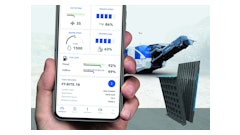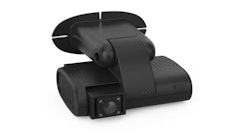By Dan Burrus
In the early days of cell phones, they were used merely for talking. Today, cell phones have a myriad of other applications. For many people, their cell phone is their daily organizer, music player, camera, GPS system, and news and weather device. But that's just the tip of the iceberg. In the very near future, cell phones will also be people's banks, credit card, keys, remote control, and video conferencing platform, just to name a few. Clearly, today's cell phones are much more than phones, and tomorrow's will revolutionize the business world.
In order to stay competitive and ahead of the curve, businesses need to look beyond what the cell phone is today and anticipate where it will be tomorrow. You have to ask yourself, "How is the cell phone changing my customers?" "What new service could I deliver on a mobile platform?" Or, "How are these beyond-voice-capabilities changing my customers' customers?"
The fact is that if you don't change with your customers, they won't be your customers for much longer. For most businesses, their customers are changing rapidly. Are you changing and learning as fast as your customers are? Because today's technology is rapidly evolving, you have to go beyond keeping up. Merely keeping up will cause you to always be behind. Rather, you need to jump ahead based on what you know will happen.
What do you know will happen? We know there are three driving forces that create exponential technological change: 1) Processing power doubles every 18 months as it drops in price, 2) Storage capacity doubles, and 3) We get faster speeds and higher bandwidth. Because of the processing power being faster, your cell phone can go online and perform searches faster. Phone companies are continually upgrading their network so the 3G network becomes the 4G network. In less than a year processing power, storage capability, and speed have all doubled, and next year they will double again, making the cell phone as powerful as your current desktop computer.
Additionally, businesses need to look at other countries to see what they're doing. As Americans, we tend to think we're the first with technology, but that isn't always the case (and it's definitely not the case with cell phones). Whereas we have multiple standards for cell phone technology, many other countries have one national standard so everyone's phone works the same way. As such, they can roll out new cell phone innovations much faster than we can.
Culture also plays a big role. The Japanese culture, for example, loves their devices and prefers using them over face-to-face conversation. So they have more cultural incentive to unveil the next cell phone use.
The bottom line is smart businesses will start seeing the certainty of technological change of cell phones and will recognize the opportunities that lie within. Following are some current and coming cell phone uses you need to be aware of and using.
Current Uses
Mobile travel. Currently, some airports allow you to use your cell phone as your boarding pass. You simply download your boarding pass to your phone. When you approach security, you pull up the barcode of your virtual boarding pass and swipe your cell phone under security's scanner. You can then go through security and board your plane without a paper ticket. Such technology saves your employees' time when traveling and eliminates the last minute "where did I put my boarding pass" search.
Mobile media. You probably already have music on your cell phone, and you may even have television programming. But now businesses can disperse training and education to employees as part of that mobile media. So while an employee is waiting in an airport for a flight, she can download the latest training information right from her phone.
Mobile management. Need to know where your salespeople or delivery drivers are at all times? We all have triangulation or GPS as part of our cell phones. There are programs, such as Looped for the iPhone that allow you, with permission, to bring up a map and see where your employees are located right now. Granted, this program was developed for personal use, so that friends and family could see where each other are, but there’s no reason why a business couldn't use it to locate employees, drivers, or anyone else who leaves the office for extended periods of time.
Future Uses
Mobile finance. In the near future, you'll be able to do banking on your cell phone, such as doing money transfers to other people. How do we know this? Because other countries are already doing it. For example, in Kenya, where we assume everything is behind the times, they have a mobile phone system where if someone owes you money, he can use his cell phone to transfer money from his account to yours. As the technology makes its way to the States, cell phones will become a vital part of people's banking.
Mobile commerce. There are places in the world where you can pay for your restaurant, auto service, groceries, parking meters, or any other item with your cell phone -- without using a credit card. You're simply using your mobile phone to pay for the transaction. To prevent fraud, cell phones will have biometric ID capabilities that can detect everything from the user's fingerprint to voice pattern and facial recognition. Such measures are actually far more secure than using a credit card.
Mobile customer service. As mega stores dominate the landscape, shoppers need more access to customer service personnel. Imagine a customer being in a huge warehouse type store and being able to use her cell phone to pull up a map of the store and locate the nearest customer service person. Or, even better, imagine that customer being able to touch an icon on her cell phone screen, which automatically lets the customer service rep know where she is and that she needs help. The technology to do this exists today; it's simply a matter of businesses applying it to this scenario. Imagine the competitive advantage you'd gain if you were the first to roll this concept out.
Opportunity Is Calling
The possibilities for tomorrow's cell phones are limitless: Mobile data, mobile media, mobile finance, mobile commerce, mobile health, mobile marketing, mobile security, mobile location services -- these are just the beginning. Over the next few years, cell phone apps (applications) will grow exponentially as well. We'll see apps for specific segments, such as doctors, lawyers, real estate agents, etc.
To stay ahead, your company needs to develop internal tools or apps for your employees that can give your organization competitive advantage, such as an app so salespeople can access key data right on their phone. Developing an app is relatively inexpensive and can work on iPhones, Blackberries and Smartphones.
Ultimately, as we move into the future of cell phone technology, the goal is to get businesspeople to not just crisis manage in the present, but to opportunity manage for the future. When you can start viewing your cell phone in that capacity, you'll be connected to a whole new world of business that can make a significant impact on your company's bottom line.
About the Author:
Dan Burrus is considered one of the world;s leading technology forecasters and strategists. He is the founder and CEO of Burrus Research, a research and consulting firm that monitors global advancements in technology driven trends to help clients better understand how technological, social and business forces are converging to create enormous, untapped opportunities. Dan has developed the first cell phone business application that allows the user to generate a business plan; the "Competitive Advantage Business Strategy Builder" will be launched in September 2009. For more information, please visit www.burrus.com.


























